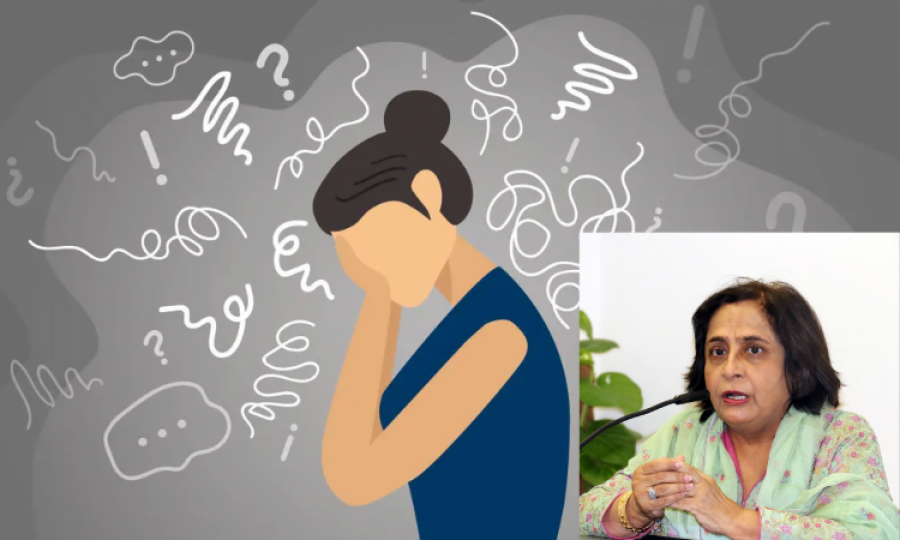Health Minister Sindh reviews manuals developed for screening of mental health

KARACHI: Minister for Health and Population Welfare, Sindh, Dr Azra Fazal Pechuho met with Dr Fauziah Rabbani and Dr Samina Akhtar from Aga Khan University to review the manuals they prepared for Lady Health Workers and Community Health Workers in Sindh.
The meeting was also attended by Secretary Health, Zulfiqar Shah and Parliamentary Secretary Health, Qasim Siraj Soomro.
This meeting discussed 'mPareshan', a digital intervention that enables a baseline screening for mental health needs and provides a strategy to cater to those needs. The data collection for this digital intervention will allow for a clear picture of the incidences of depression, anxiety, suicidal ideation, schizophrenia etc.
The Minister Health, Dr Azra Pechuho reviewed the manuals and said that there needs to be a more pictorial approach towards explaining mental health training so that there is a universal level of understanding for all community health workers. The manuals have been designed by AKU and are available in Sindhi, Urdu and English for greater accessibility to the information, but the more illustrated the information is, the easier it will be to grasp and retain.
Project Pareshan aims to develop a Health strategy to allow Pakistan’s LHW and their supervisors to assess, counsel and make appropriate referrals for those with anxiety and depression within the community. The point prevalence of anxiety and depression was assessed through a household survey to identify those who screened positive for anxiety and depression on the PHQ-9, GAD-7 and LS-10 scales. Tracking was the first step where community health workers would check homes for whether there was a registered person here and that there was no harm being caused to others or self and then counseling or referral could begin.
Dr Azra Pechuho also added that there should be special focus on the mental health of women and adolescent children as they are especially vulnerable to external stressors. Men and women should be counselled for conflict resolution, marital issues, and mental health. Minister Health stressed on the fact that perinatal and antenatal depression is almost never highlighted in the discourse around mental health and this needs to change.
Dr Fauziah said that in a population of 220 million there are only 540 licensed psychiatrists and in their absence, regular GPs and quacks are prescribing medication for mental health needs which can exacerbate the condition instead of helping.
Dr Azra also said that a helpline for mental health (1122) should be strengthened and would be a great relief to the province. Telehealth will allow for mental health awareness, counselling and treatment to be accessible across Sindh.
Advertisement
Trending
Popular
Hair loss: Discovery uncovers key stem cells that could reverse ...
-
Broccoli sprout compound may help lower ...
11:31 AM, 25 Feb, 2025 -
Gas Pain vs. Heart Attack: How to tell ...
09:00 PM, 22 Feb, 2025 -
Coconut oil supplement shows promise ...
08:00 PM, 20 Feb, 2025 -
Normal vitamin B12 levels may still ...
05:00 PM, 19 Feb, 2025



